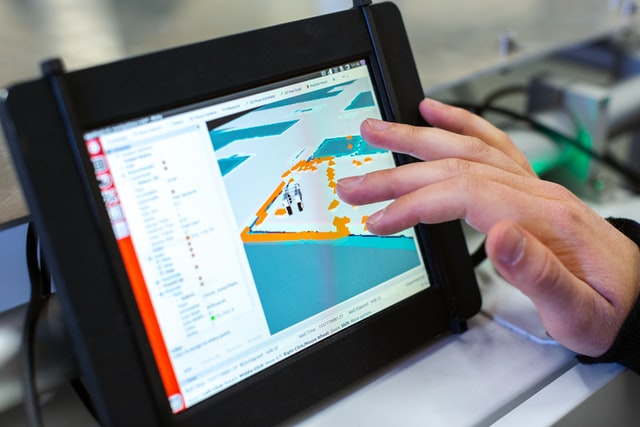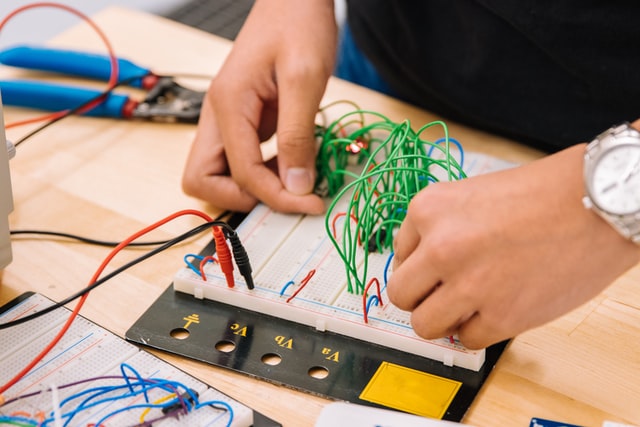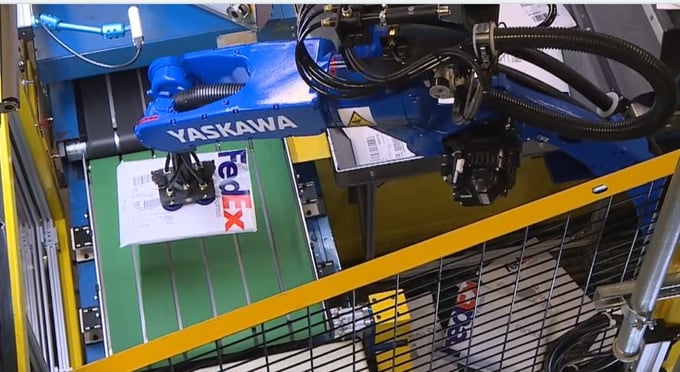How the BLM Movement Can Spark More Diversity in STEM Programs
On May 26, 2020, in response to the murder of George Floyd the day prior, Black Lives Matter protests began in Minneapolis, Minnesota. Since then, protests and riots against police violence have continued, with demands for racial justice. The national outcry has further spread, and individuals, businesses and industries are reevaluating their norms and values. Specifically, diversity in STEM is one field that requires large-scale changes moving forward.
 Photo by Maria Oswalt on Unsplash
Photo by Maria Oswalt on Unsplash
As communities across the United States continue the momentum, people are rejecting the idea of going back to "normal." STEM diversity during BLM is a case study of why a new norm needs to come about.
- 0 Comments
- Aug 17, 2020 10:00:00 AM
- Posted by Natalia Galvis
- Topics: Robotics, EdTech, STEM, Robots,, students, Technology, Learning, Edchat, classroom, BlackLivesMatter
How Technology Supports Relationships Between Teachers & Students
During the three years my colleagues and I spent researching our book Whole: What Teachers Need to Help Students Thrive, we investigated the unique success stories of schools that were “out-performing their zip code.” Often situated in poor neighborhoods, the one consistent element across these “success outliers” was a culture focused on social and emotional well-being, first for teachers and then for students. Photo by ThisisEngineering RAEng on Unsplash
Photo by ThisisEngineering RAEng on Unsplash
Enter COVID-19 and an explosion of stress, emotional challenge, and a distance in space and time between teacher and student. Much of what we understood about schooling changed in a matter of days, including schools’ ability to connect with teachers and students in an emotional, caring, and personalized manner. Technology had to immediately fill the gap, and that need will continue.
- 0 Comments
- Aug 14, 2020 10:00:00 AM
- Posted by Natalia Galvis
- Topics: Robotics, EdTech, STEM, Robots,, students, Technology, Learning, Edchat, classroom
How to Sanitize your EdTech Equipment.
In this blog post, we want to show you how to sanitize your EdTech equipment and help to prevent the spread of viruses, germs and bacteria. There are some easy measures to help educators, students, and parents stay healthy. Check it out!
Click on the image above, or here to watch the video
- 0 Comments
- Aug 13, 2020 2:10:43 PM
Making STEM More Engaging and Inclusive
We have a STEM problem in the United States. Once a world leader, the United States currently ranks 27th among developed nations in the number of bachelor’s degrees given in science or engineering. What’s more alarming is that the same research indicates that only around 30 percent of Americans believe that our education system has the capacity to provide young people with the minimum requirements to fill these STEM jobs.
 Photo by Jeswin Thomas on Unsplash
Photo by Jeswin Thomas on Unsplash
We contend that these findings are only symptoms of a larger problem with STEM: The current approach to STEM education is far too exclusionary and siloed—a problem that has been exacerbated by the Covid-19 crisis.
- 0 Comments
- Aug 13, 2020 10:00:00 AM
FedEx is utilizing robotic arms to sort packages
 Image credits: FedEx
Image credits: FedEx
FedEx has flirted with robotic technologies before, most notably in the case of Roxo. The delivery robot made its debut in New York City last year, only to get the boot from Mayor Bill de Blasio. These days, however, the prospect of increased automation seems all the more pressing, as COVID-19 has left many reconsidering the human element of the supply chain.
- 0 Comments
- Aug 11, 2020 10:00:00 AM
Overcoming Teacher's Fear of Technology
It doesn’t matter if you are a new teacher or a veteran teacher; technology in general can be a bit terrifying. It’s not so much that it’s actually technology. It’s that often, as soon as new technology, software, and programs are released – and mastered – there is suddenly a new, more technically advanced version to learn.
 Photo by William Iven on Unsplash
Photo by William Iven on Unsplash
Then, when you throw in the fact that as teachers we are already crunched for time, so now it’s just one more area to learn, one more thing to add to our never-ending to-do list. And, we are told that we need to connect it/implement it into the students’ learning without training or with little training, so it quickly creates tension and a fear of technology within us.
- 0 Comments
- Aug 10, 2020 10:00:00 AM
How to Help Students Get Used to Masks
In many places, students returning to school buildings will be required to wear masks. These strategies can help elementary students adjust. Photo by Mika Baumeister on Unsplash
Photo by Mika Baumeister on Unsplash
- 0 Comments
- Aug 7, 2020 10:00:00 AM
- Posted by Natalia Galvis
- Topics: STEM, Robots,, students, Edchat, coronavirus, covid19, classroom, masks
Relevant Posts
Popular Posts
Subscribe to Email Updates
-
I Want To Learn MoreADDITIONAL INFORMATION


-1.gif?width=681&name=gif%20(1)-1.gif)
